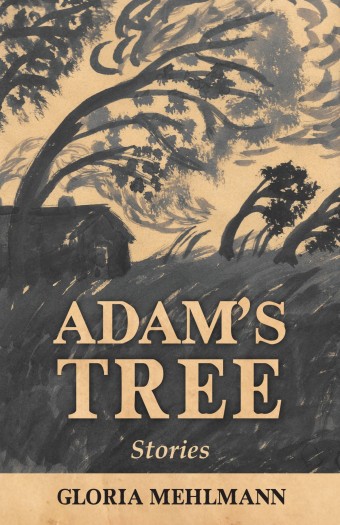Adam’s Tree by Gloria Mehlmann is a collection of linked short stories, set in a First Nations community, in the time period immediately after the Second World War. Young Sophie is the protagonist in several of them, providing a child’s perspective of some very adult happenings. In “Beating Heart,” six-year-old Sophie sees how her Moshum treats her Aunt Mary, who has arthritis, and connects that to the way her own father treats her.
Through the eyes of Sophie and Mehlmann’s other characters, readers see a view of reserve life that is compelling and at times disturbing.

- Adam’s Tree
- Gloria Mehlmann
- Radiant Press
- $22.00 Paperback, 220 pages
- ISBN: 978-19-89274-05-7
Mehlmann writes from experience. She grew up on the Cowessess First Nation in Saskatchewan. Her first book, Gifted to Learn, was a memoir of her years as a public school teacher. Her latest book goes back further.
She was born in 1941 and, at one time or another, lived the life she now tells in fiction. “A sharp ear and vivid memory allowed me to recast the stories in the light of their origins,” Mehlmann says. “Also, my practical life experiences helped round out the stories that reflect, for instance, education as an organization, government policy as an inhibiting force, and the modern church as a human invention.”
Besides teaching for about 20 years, Mehlmann has also worked as a government consultant in curriculum development and as a college/university administrator. She has been recognized repeatedly for her contributions to educational, Indigenous, and civic initiatives, and in 2005, she was awarded the Saskatchewan Centennial Medal. She now writes full time.
“Some of the material in the stories is a real source of conflict for me as a writer, especially since relatives, family associates, friends, and so on are forced upon the stage, albeit in disguise.” -Gloria Mehlmann
Authors are urged to “write what you know.” Sometimes, this is not an easy assignment.
“Some of the material in the stories is a real source of conflict for me as a writer, especially since relatives, family associates, friends, and so on are forced upon the stage, albeit in disguise,” Mehlmann says.
“It is painful to expose events that, even though these can now be seen as outcomes of one killing field or other, like war, they remain a source of ambivalence – to what extent is an abused citizen (as child and adult) blameworthy for present conditions?”
Mehlmann has always wanted to write. At 12, she had a poem titled “To Grandma” published in the Winnipeg Free Press. “I had read the poetry of E. Pauline Johnson in school, and since I liked poetry, wrote the little verse,” she recalls. “That was major, for me.”
She also read a lot, writers like Doris Lessing, Susanna Moodie, and Alice Munro “who revealed magical things in everyday existence.” She still enjoys rereading the works of her Saskatchewan mentors, writers like Dianne Warren, and Saskatchewan poets.
Mehlmann has learned much about craft, and it shows in this debut collection of stories. But she also wants her stories to have a social impact.
“My wish for Adam’s Tree is that it open the door for readers to look into a past that can be seen and felt today,” she says. “I hope they will relate these stories to the reality of global displacement so often associated with loss of cultural moorings and loss of family connections.”













